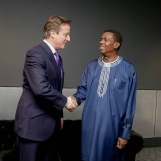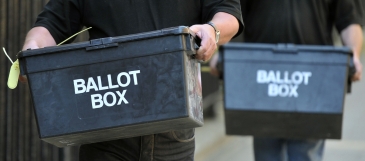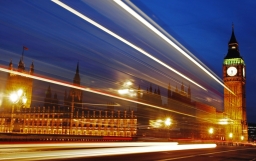Religious minorities could be crucial in influencing the result of the general election, according to a new paper.
Religious Diversity in British Parliamentary Constituencies, the most comprehensive study of its kind, finds that while Great Britain's parliamentary constituencies remain overwhelmingly Christian but minority religions have a potential influence that far outweighs their size.
Minority religions account for just 7.8 per cent of the population but their high presence in marginal seats means they could significantly influence the outcome, according to the paper published by the Henry Jackson Society.
Among the marginal seats where voters from a minority religion could influence the result, Islam outweighs the majority vote in 90, Hindus in 40, Sikhs in 25, Buddhists in 15 and Jews in 11.
Dr Alan Mendoza, executive director of the Henry Jackson Society and the report's author, said: "Although religious affiliation is only one of any number of factors that explain how people vote, for the first time we now have a basis on which to examine the influence of 'religious issues' in that process. Britain is changing rapidly. Will our political parties be up to the challenge of recognising that process?"
The data was obtained by matching political data from the 2010 parliamentary elections against census data on the UK's religious make-up.
The data shows that Britain remains overwhelmingly a Christian-majority country with six out of ten residents identifying as Christian. The smallest Christian share of any constituency is 24.2 per cent in Leicester East in the East Midlands, and the largest share is 81.5 per cent in Knowsley in the North East.
London and the West Midlands are the most religiously diverse regions in Great Britain, while the North East is the least.
Islam is the largest minority religion in 155 out of the 193 marginal seats, more than eight out of ten.
"Broadly speaking, Great Britain's minority religions have the potential to carry more influence among marginal seats than all constituencies overall," the report says.
With just days to go before voting, a round-up of further research on religion and politics has been collected by the British Religion in Numbers project.
Eliza Filby, author of the book God and Mrs Thatcher, says in an essay on the Standpoint magazine blog that the religious vote still matters but might not for much longer. She criticises a failure to acknowledge the religious vote by politicians who she says prefer to use ethnicity rather than religion.
"Data analysis on the religious vote over the last 40 years collated by the Christian think-tank Theos also reveals that despite growing secularisation there is still a clear political demarcation between Christian denominations and political affiliation," she writes.
"Anglicans are still overwhelmingly Tory voters and twice as likely to vote Conservative as Catholics, who remain predominantly Labour supporters regardless of how devout they are.
"It perhaps does not need saying that there exists a clear political divide between churchgoers and their church leaders ... For all their protestations, church leaders have failed to convert their congregations politically."

















